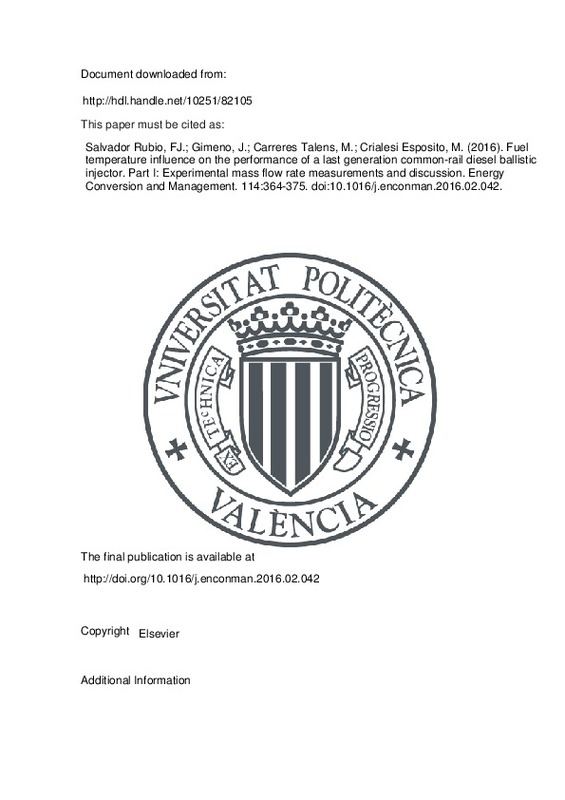JavaScript is disabled for your browser. Some features of this site may not work without it.
Buscar en RiuNet
Listar
Mi cuenta
Estadísticas
Ayuda RiuNet
Admin. UPV
Fuel temperature influence on the performance of a last generation common-rail diesel ballistic injector. Part I: Experimental mass flow rate measurements and discussion
Mostrar el registro completo del ítem
Salvador Rubio, FJ.; Gimeno, J.; Carreres Talens, M.; Crialesi Esposito, M. (2016). Fuel temperature influence on the performance of a last generation common-rail diesel ballistic injector. Part I: Experimental mass flow rate measurements and discussion. Energy Conversion and Management. 114:364-375. https://doi.org/10.1016/j.enconman.2016.02.042
Por favor, use este identificador para citar o enlazar este ítem: http://hdl.handle.net/10251/82105
Ficheros en el ítem
Metadatos del ítem
| Título: | Fuel temperature influence on the performance of a last generation common-rail diesel ballistic injector. Part I: Experimental mass flow rate measurements and discussion | |
| Autor: | Crialesi Esposito, Marco | |
| Entidad UPV: |
|
|
| Fecha difusión: |
|
|
| Resumen: |
An experimental study is conducted in this paper in order to assess the influence of the fuel temperature on the performance of a last generation common-rail ballistic solenoid injector. Mass flow rate measurements are ...[+]
|
|
| Palabras clave: |
|
|
| Derechos de uso: | Reserva de todos los derechos | |
| Fuente: |
|
|
| DOI: |
|
|
| Editorial: |
|
|
| Versión del editor: | http://doi.org/10.1016/j.enconman.2016.02.042 | |
| Código del Proyecto: |
|
|
| Agradecimientos: |
This work was partly sponsored by "Ministerio de Economia y Competitividad" (Spain) in the frame of the project "Comprension de la influencia de combustibles no convencionales en el proceso de inyeccion y combustion tipo ...[+]
|
|
| Tipo: |
|







![[Cerrado]](/themes/UPV/images/candado.png)


